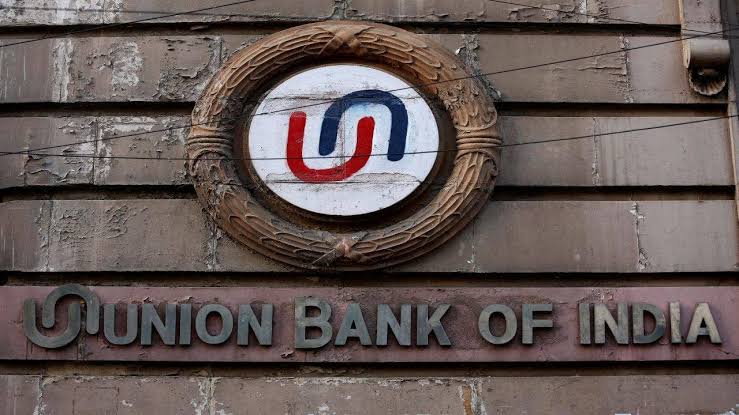Add your promotional text...
Union Bank of India Takes a Leading Role in Climate Risk Management by Joining PCAF
Synopsis: Union Bank of India has become the first major Indian bank to sign up with the Partnership for Carbon Accounting Financials (PCAF), a global initiative focused on tracking and reducing greenhouse gas emissions. This move aligns with the Reserve Bank of India's recent climate risk disclosure guidelines and highlights Union Bank’s commitment to sustainability by measuring and managing its financed emissions. As a leader in climate risk management, the bank sets an example for other financial institutions in India to follow.
MARKETSINDIA
By Sameer Malhotra
9/9/20243 min read


In a landmark move that reflects its strong commitment to sustainability, Union Bank of India has become the first major Indian bank to join the Partnership for Carbon Accounting Financials (PCAF). This decision comes at a critical time when the global banking industry is focusing on managing climate-related risks and adhering to evolving regulations. By signing up with PCAF, Union Bank aims to set a precedent in the Indian banking sector by taking significant steps towards tracking and reducing its greenhouse gas emissions.
What is PCAF?
The Partnership for Carbon Accounting Financials (PCAF) is a global coalition of financial institutions that collaborate to develop and apply a standardized framework for measuring and disclosing greenhouse gas (GHG) emissions. This partnership helps banks, asset managers, and other financial entities track the GHG emissions associated with their loans and investments. The ultimate goal is to assist financial institutions in managing climate-related risks and contributing to global efforts to reduce carbon footprints.
Union Bank of India’s Commitment to PCAF
Union Bank of India’s decision to join PCAF underscores its focus on sustainability and its commitment to climate risk management. This move aligns closely with the Reserve Bank of India (RBI)’s recent draft guidelines on climate risk disclosures, marking an important step forward for the Indian banking industry. The bank issued a statement saying that by becoming a PCAF signatory, it is taking concrete measures to assess and manage its financed emissions.
The Significance of Financed Emissions
Financed emissions, often referred to as Scope 3 emissions, are the indirect emissions generated through a bank’s lending and investment activities. These emissions tend to surpass a bank’s direct or operational emissions, making them a critical factor in the overall climate risk that banks must manage. As regulatory frameworks evolve globally, including the recent RBI draft guidelines, banks are now required to take a more proactive approach in tracking and reducing these emissions.
The Role of RBI’s Draft Guidelines on Climate Risk
The Reserve Bank of India has been increasingly focusing on climate risk management for banks and other financial entities. “Disclosure Framework on Climate-Related Financial Risks, 2024”, released in draft form on February 28, 2024, sets the foundation for more stringent reporting requirements. The framework mandates regulated entities to provide disclosures in four key areas:
1. Governance: How the bank is managing climate-related risks at the board and executive levels.
2. Strategy: How climate-related risks and opportunities are incorporated into business strategy.
3. Risk Management: The bank’s processes for identifying, assessing, and managing climate-related risks.
4. Metrics and Targets: The key performance indicators and goals the bank is setting for itself regarding climate risk.
Union Bank of India’s Leadership in Sustainability
By becoming the first major Indian bank to join PCAF, Union Bank of India is setting an example for other financial institutions in the country. The bank’s proactive steps towards measuring and managing its financed emissions signal its long-term commitment to addressing climate change, in line with global efforts. This move is not just about regulatory compliance; it is about taking leadership in the Indian banking sector to ensure sustainable growth in the future.
A Broader Perspective on Climate Risk for Financial Institutions
Globally, financial institutions are under increasing pressure to account for the environmental impact of their lending and investment portfolios. As governments implement policies aimed at mitigating climate change, banks must adapt by assessing the risks that climate change poses to their portfolios. These risks range from the financial impact of extreme weather events to regulatory penalties associated with non-compliance on carbon disclosures.
By joining initiatives like PCAF, banks can develop a deeper understanding of their exposure to climate risks and align their operations with the goals set forth by the Paris Agreement and other global climate accords. The development of standardized methods for tracking emissions across various sectors helps ensure that the financial industry plays a pivotal role in driving the transition to a low-carbon economy.
The Way Forward for Indian Banks
As the RBI’s climate risk disclosure framework continues to evolve, more Indian banks are expected to follow Union Bank of India’s lead in joining PCAF and similar global partnerships. This shift towards greater accountability and transparency in climate risk management is not only a regulatory requirement but also a business necessity. Banks that fail to address the risks associated with climate change may find themselves at a disadvantage, both financially and reputationally.
In conclusion, Union Bank of India’s decision to become the first major Indian bank to sign on to PCAF is a forward-thinking move that positions the bank as a leader in sustainability. By aligning with global efforts to standardize climate risk reporting and taking active steps to manage its financed emissions, Union Bank is contributing to a more resilient and environmentally responsible financial sector in India.
